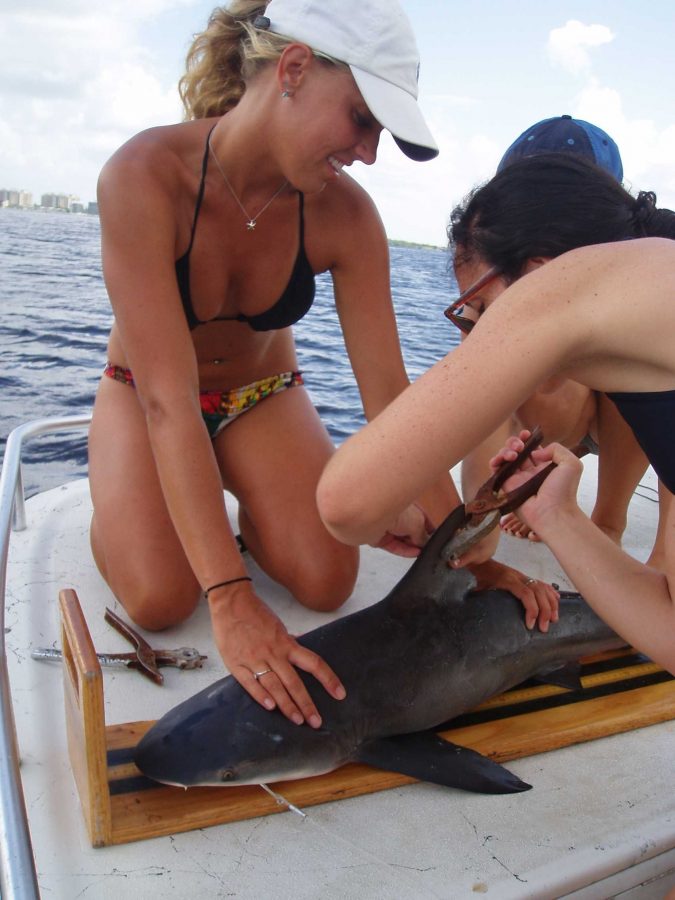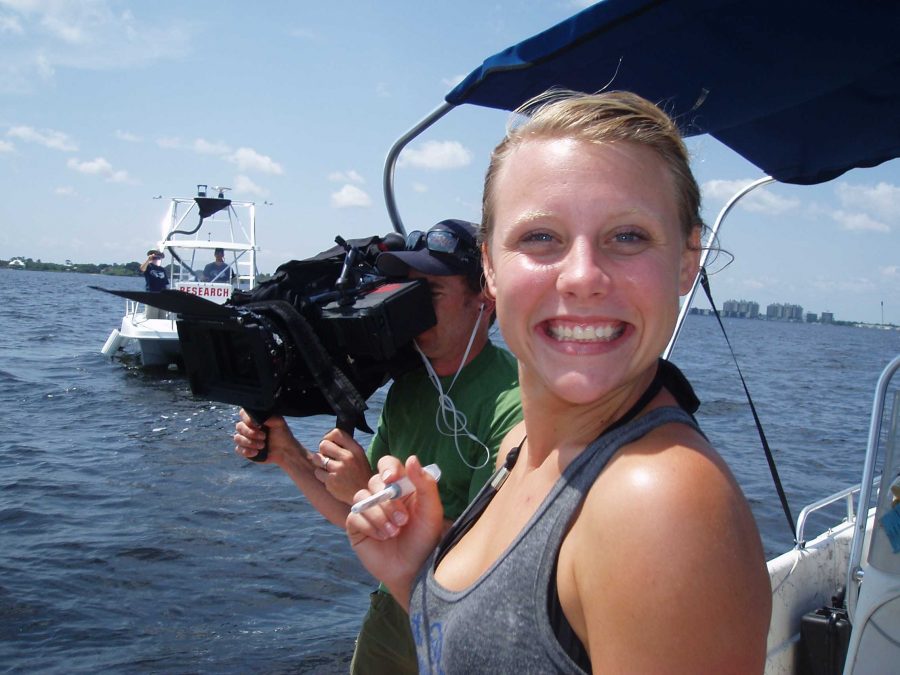UNF biology students may have a role in revolutionizing shark research–by creating a pregnancy test. A pregnancy test for sharks may not seem important to the average person, but for biology professor James Gelsleichter and his students, the topic has been worth years of research.
Gelsleichter, an associate professor of biology and interim director of the coastal and marine biology flagship program, has spent more than a decade researching sharks. Through the shark program at UNF, he studies ecology, reproduction and toxicology. The ecology and toxicology branches focus on population surveys and the effects of pollutants on shark populations.
Students participate in the program through independent studies or the summer shark ecology class, a competitive summer class that only accepts nine students a year.
To effectively manage and conserve shark populations, Gelsleichter said, they need to know things like the makeup of the population and the rate of growth. That’s where the pregnancy tests come in.
In the past, population research required euthanasia and dissection. Gelsleichter said the sharks were dissected and then researchers examined the reproductive tract.
“It’s kind of that hidden secret that we don’t tell you too much. But all fish reproduction studies, and really most animal reproduction studies, were really built on people conducting dissections,” he said.
In his research, he said, he works with animals that are six or seven feet long, taking a very small sample during the dissection of the shark’s reproductive tract.
“It’s necessary, but it doesn’t make any of us feel better by the end of the day,” he said.
He said euthanizing the animals does not go against ethical standards of research and in most cases does not have a significant impact on the population. The shift to studying non-lethal methods comes from a personal choice that Gelsleichter attributes to the morality of it .
Non-lethal methods are also useful in studying endangered animals, Gelsleichter said. Endangered species cannot be killed for research and all efforts must go towards rebuilding the population. Right now, he said, it is difficult to do that research without using lethal methods, so his program is working on alternatives.
Gelsleichter said he and his students are trying to identify the proteins that mark pregnancy in sharks, which would make a pregnancy test possible. They collected samples from pregnant and non-pregnant animals and sent them to a lab for analysis, something that is common in diagnostic medicine, but not typically used for wildlife research because of the cost.
The students on the sampling team are “out doing everything-catching sharks, baiting, putting hooks out, handling the animals, drawing blood, helping ultrasound, things like that,” Gelsleichter said.
Currently, Gelsleichter and his students determine pregnancy using an ultrasound machine they adapted for use with sharks. The machine is water resistant and uses goggles–Gelsleichter described it as similar to looking at virtual reality–to avoid the glare that would make the screen of a standard ultrasound impossible to read.
“The one that we use is the only one that is really capable to doing all of these things,” he said, but even once they have the ultrasound, reading it is not easy.
He’s had ultrasound techs evaluate things and make mistakes due to not understanding the shark biology. “We’re not trained in ultrasonography. We’re not radiologists,” he said. “What’s inside the animal too, it takes a while to really be able to understand what you’re seeing.”
Gelsleichter said that though he expects results back from the lab very soon, he does not expect the project to wrap up. He said the research process is ongoing and there is always another area, or another species, to study.
—
For more information or news tips, or if you see an error in this story or have any compliments or concerns, contact [email protected].




















